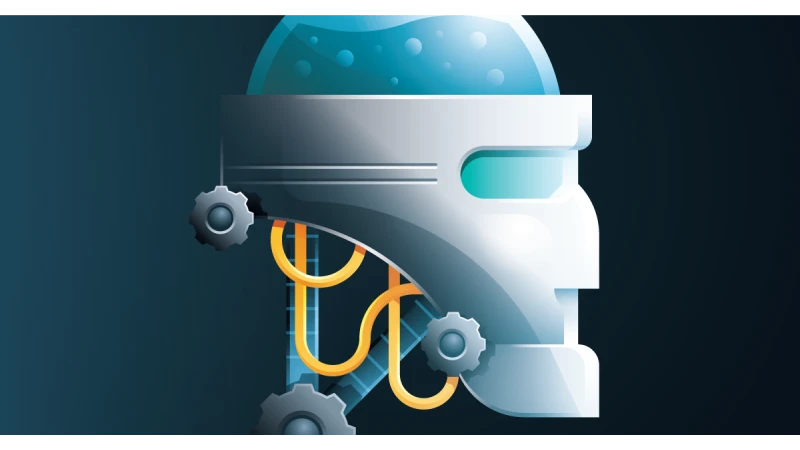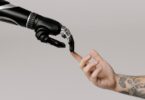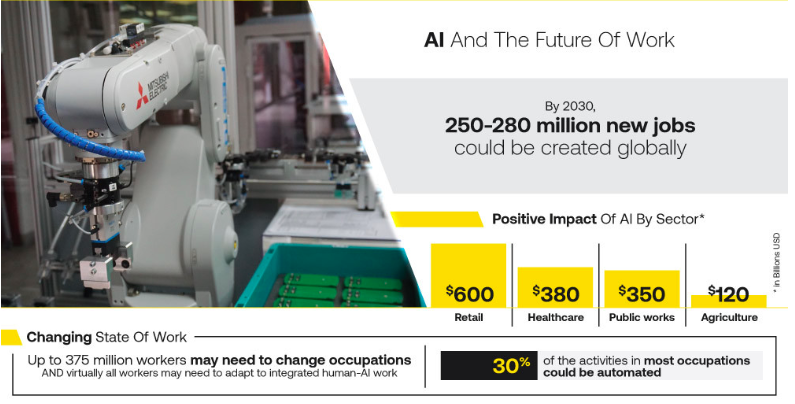The global interest in AI has spiked dramatically this year, with the global market increasing twenty fold by 2030. These numbers have many people wondering if AI has the ability to grow without human intervention. It is inevitable that AI is growing and learning rapidly, as it has become a very large part of the global technology mix. Research on the topic has doubled since 2013, and the funding of AI startups has also increased significantly. In addition, There have be eighteen times greater AI private investments in 2022 in comparison to 2013.
The global adoption of AI is also on the rise, as businesses both exploring AI and actually using it have increased in several countries. More specifically, big technology players like China, Canada, the United Kingdom, Australia, and the United States have all reported increased numbers in AI use. In fact, many believe that our lives will actually significantly change because of AI in the coming years. With artificial intelligence taking over in areas like education, transportation, shopping, entertainment, safety, and more, the possibilities for this new technology are endless.
ChatGPT has quickly become one of the more well known AI softwares available to the public. Hitting 100 million monthly active users at the start of 2023, ChatGPT has become the fastest growing application in history. Despite these feats, however, AI is not perfect, and is definitely not self-sustaining. There have been several incidents and controversies, with those numbers actually increasing 26-fold since 2012.
As of today, AI cannot make perfect decisions without human intervention, and may even make mistakes that have significant consequences. For example, Rekognition AI falsely identified multiple members of congress as criminals and was unable to distinguish certain faces from one another. Also, an AI soccer camera that was used by a Scottish soccer team mistakenly tracked a player’s bald head instead of the ball during a game. Overall, today’s AI lacks the ability to narrow its focus during research, explain why it came to a certain conclusion, select and determine the most important data in a set, and much more.
Artificial intelligence also cannot tap into human soft skills, such as creativity, empathy, and teamwork. These types of conclusions are tested using the Turing Test. The Turing Test answers the question “can an AI become intelligent enough to pass as a real human?” It is true that some AI applications, such as ChatGPT can pass this test, however, there is no platform that has ever passed the Lovelace Test. This test assesses whether or not an AI can produce something that is unexpected or unexplained by its human creators.
Although AI has not yet reached some of these thresholds, many major world leaders and experts are signing a petition to halt the development of AI. According to the Asilomar AI principles, advanced AI could signify a major change in the history of Earth, meaning that it must be managed with care and taken very seriously. Currently, AI needs human intervention to reach new heights, but it still has had and will have serious effects on human work. Erin Schmidt, the former CEO of Google, has stated that “AI is going to act as a research assistant to researchers, making itself indispensable to any researcher wanting to stay competitive.” With human guidance, AI may be able to expand its roster of jobs and achieve the coveted position of artificial general intelligence.
The human element may be the key to unlocking AI’s true potential. Mixing AI and human capabilities may lead to the advancement of AI in many ways. The ability to multitask, to understand common sense, morality, empathy, and creativity are just some of the aspects that may become available.
What AI needs from humans right now is creativity and adaptability. Since AI is inherently motiveless and requires a human element, it is up to us to direct it through curation. The advancement of AI is in the hands of all who benefit from it, from the highest of experts and creators to the lowest of common men. Unlocking the potential of AI technology starts with human interaction, and those who can create AI commands centered around human behavior hold the keys to our future.

Source: Academic Influence













